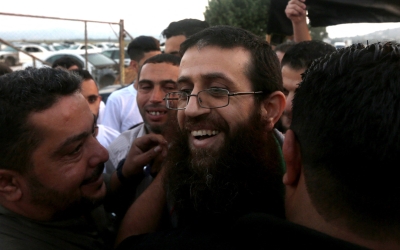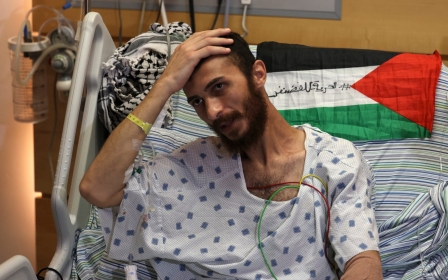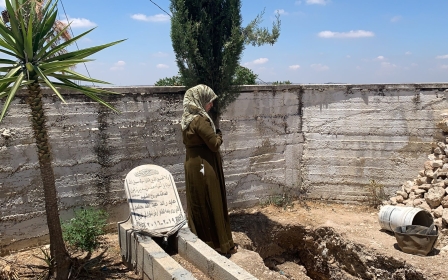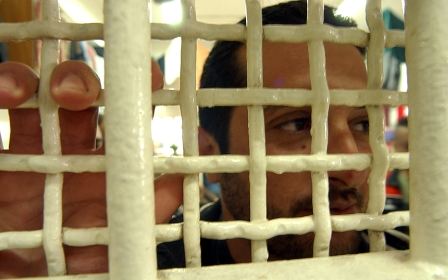Palestinian activist vows to continue sit-in demanding release of Khader Adnan's body
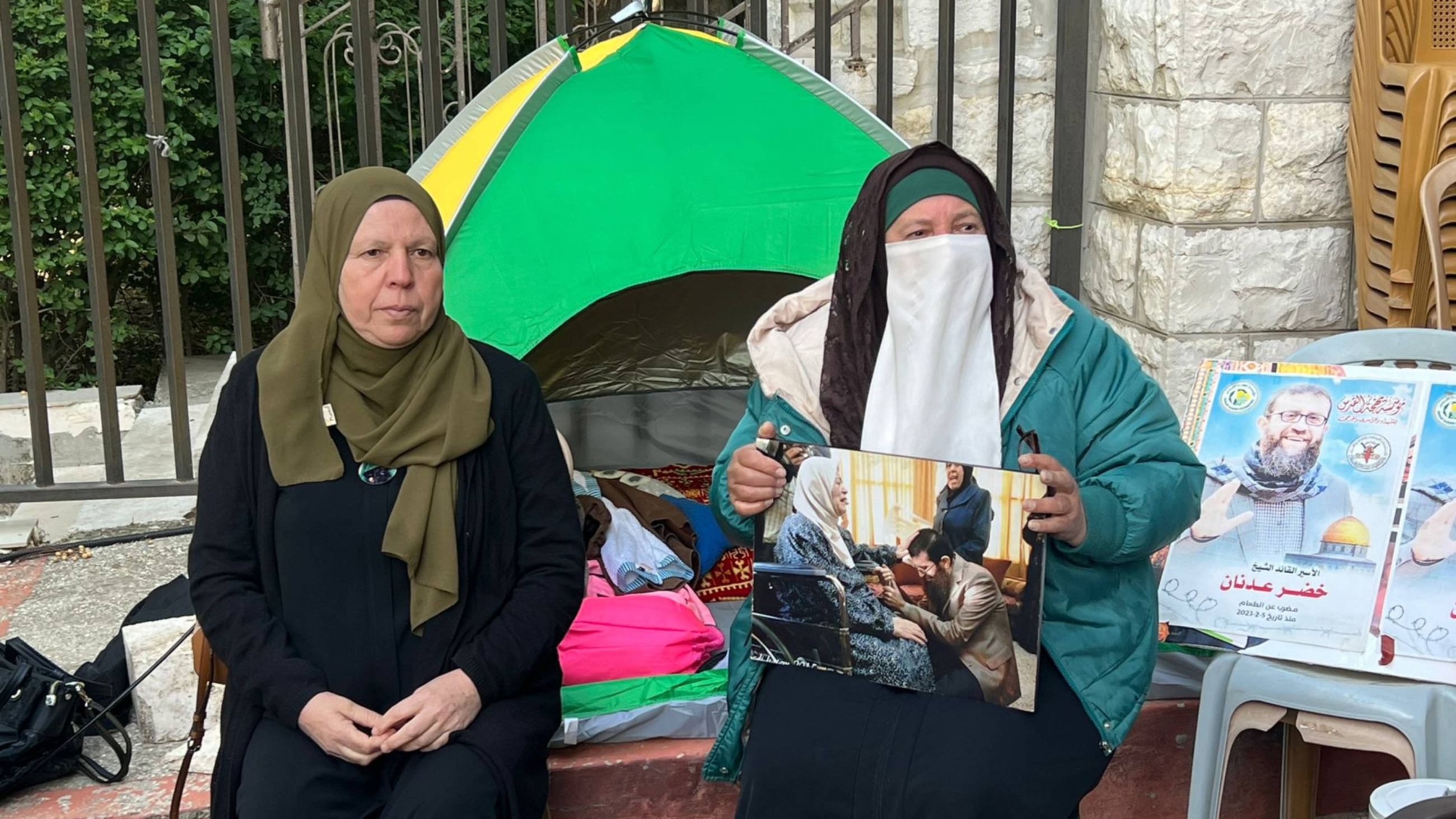
Palestinian activist Ataf Elayan, 60, has entered her 11th day of a sit-in in front of the International Committee of the Red Cross (ICRC) in the occupied West Bank to protest Israel's withholding of the body of prisoner Khader Adnan, who died in prison earlier this month.
A former prisoner herself, Elyan said her aim is to pressure Israel to release Adnan's body and to highlight its controversial policy of withholding the bodies of Palestinians, mainly of those killed by Israeli forces after alleged attacks or clashes.
On Tuesday, Elyan ended 10 days of hunger strike, which she started along with her sit-in in front of the ICRC headquarters in al-Bireh city on 7 May.
Adnan died at the age of 45 in an Israeli prison cell. He had been on hunger strike for 86 days, in protest against his detention.
Israel has detained the bodies of 132 Palestinians in its morgues since 2015, including 12 prisoners who died in Israeli detention, as well as the bodies of 256 Palestinians kept in the Israeli burial sites known as "cemeteries of numbers", named after the numbering system that replaces names on graves.
New MEE newsletter: Jerusalem Dispatch
Sign up to get the latest insights and analysis on Israel-Palestine, alongside Turkey Unpacked and other MEE newsletters
Families face long legal battles for the release of the bodies of their loved ones. In the best case scenario, bodies are handed over at midnight on an agreed release date, on condition that funerals are silent and attended by no more than a few dozen mourners.
"I came here alone carrying a powerful weapon - my hunger strike. This is a peaceful weapon that Khader Adnan wielded several times until he died in prison while rejecting Israeli injustice," Elayan told Middle East Eye.
Adnan was detained by Israel 12 times, spending around eight years in prison, mostly under administrative detention - an Israeli policy widely used against Palestinians to hold them without charge or trial for periods of up to six months, renewable indefinitely.
During his time in detention, Adnan was a spokesperson for Palestinian prisoners and went on hunger strike five times.
According to his family, when Adnan began his first hunger strike in 2004, he was inspired by Elayan's own experience, where she had gone on multiple hunger strikes during the different periods she'd spent in Israeli detention.
Elayan was arrested for the first time in 1987, and was sentenced to 15 years in prison, of which she spent 10 years.
At the time, she announced her first hunger strike, which lasted for 12 days, during a harsh interrogation session to protest the humiliating treatment she was subjected to.
"They tore off my hijab and clothes, and threatened to rape me. They put me in a dirty cell and treated me like an animal. I found no way to object to that except by going on hunger strike, a tool I had used dozens of times thereafter to protest many Israeli violations," she said.
In 1997, only months after her release, Elayan was re-arrested and put in administrative detention.
In protest, Elayan went on a hunger strike, this time for 40 days, which ultimately led to her release.
"Hunger strike is a way we use to try to get rid of the injustice that befalls us, and it is the most peaceful way we confront the Israeli occupation and its constant attempts to restrict our freedom," she said.
Illegal practice
The families of Palestinians whose bodies are still being held by Israel have declared their solidarity with Elayan, stressing that she has long been active within their ongoing movement, established in 2015 to recover their loved ones.
Azhar Abu Srour, 51, made a trip from Bethlehem to al-Bireh last week to express her solidarity with Elayan. The body of her son, Abdel-Hamid, has been withheld in a morgue since Israeli forces killed him in 2016.
"I want my son. I want to bury him and know where he is. I want to visit his grave and put flowers on it," Abu Srour told MEE while visiting Elayan's sit-in.
"This is the simplest right for any mother who has lost her son. Why do they torture and kill us a thousand times every day?"
'I want to bury him and know where he is. I want to visit his grave and put flowers on it'
- Azhar Abu Srour
Abu Srour has repeatedly tried to find out where her son's body was being held by going to the Israeli courts, but has received no answers.
Abu Srour has not been able to find closure or accept her son's death in the absence of a body and a death certificate that proves to her that he is not still alive.
She said she is deeply afraid that Israel might have harvested her son's organs and descrated his body, a common fear among Palestinians after it was revealed that Israeli authorities have done that in the past.
Lawyer Farid al-Atrash, a member of the Independent Commission for Human Rights, said the withholding of bodies of Palestinians killed by Israel is an extreme and illegal practice.
He added that any legal attempts by Palestinian organisations to recover the bodies collide with Israel's efforts to make this issue a part of a future prisoner exchange deal with Palestinians.
Middle East Eye delivers independent and unrivalled coverage and analysis of the Middle East, North Africa and beyond. To learn more about republishing this content and the associated fees, please fill out this form. More about MEE can be found here.


